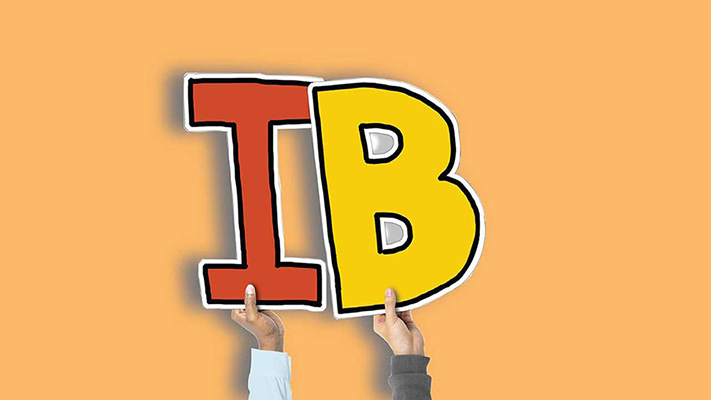IB Program
WHAT IS THE IB – INTERNATIONAL BACCALAUREATE PROGRAM?
IB Diploma, also known as the IB Program, is a globally recognized program of study and a diploma highly regarded by top universities around the world. Developed in 1960 in Switzerland, with the goal of comprehensive development, the program is increasingly popular, attracting many parents and students in Vietnam.
1. IB International Baccalaureate program structure
1.1. Subjects
IB’s subjects are divided into 6 subject groups:
-
- Group 1 – Studies in language and literature – also known as first language
- Group 2 – Language acquisition - also known as second language
- Group 3 – Individuals and societies
- Group 4 – Sciences
- Group 5 – Math
- Group 6 – The arts
Except for 4 subjects with only SL, the remaining subjects have 2 levels: SL (Standard Level) and HL (Higher Level). Students enrolled in the IB program will have to study 6 subjects, the first 5 subjects they will choose from groups 1 to 5 (each group chooses 1 subject), the 6th subject can choose from group 6 or choose any from 5 groups above. In 6 subjects, students need to choose from 3 to 4 subjects with HL.
Scores for each subject will be based on the results of the IA (Internal Assessment) and EA (External Assessment) tests. IA is an internal assessment with a variety of tests, taken at the end of the first year or at the beginning of the second year and accounts for 20-30% of the score. Except for the presentation and performance, students need to go to the exam room, the remaining forms of the IA exam such as research, surveying, and experiments will be done at home and submitted before February of the second year of the IB program. Meanwhile, EA is a final exam held at the end of year 2 by IB and accounts for 70-80% of the score. EA consists of 2 to 3 papers and students take the test on different test dates.
During the Covid-19 pandemic when children could not go to school and their studies were more or less interrupted, IB has adjusted and reduced the load in both learning and testing content to match the actual situation for several years come back here.
See also: Typical subjects in International Baccalaureate program
1.2. Core elements
Besides the above 6 subjects, students who want to complete the study program and receive an IB degree are required to complete 3 core elements, including:
-
- Extended Essay (EE): A 4,000-word essay with an optional topic around an area of the curriculum. Students choose 1 of 6 subjects to study for the EE. The purpose of this module is to help students develop the ability to synthesize, analyse and evaluate knowledge through researching topics, expressing ideas, and developing arguments from their own point of view.
- Theory of Knowledge (TOK): Helps to form critical thinking about the nature of knowledge and what people believe to be true. TOK consists of 2 parts: a presentation (possibly as a group) to be submitted by February of first year and a 1,600-word essay (individual) to be completed by February of second year.
- Extra-curricular activities (CAS): Consists of 3 parts: Creativity, Activity and Service. This module reflects the all-round development, showing the creativity and dynamism of students.
1.3. How to calculate points?
IB scale for all 6 subjects (both SL and HL) has a 7-point scale for each subject, for a total of 42 points. In addition, students can accumulate up to 3 sub-points from 3 core elements: EE, TOK and CAS. So, the maximum score a student can get in the IB program is 45 points.
2. Why is the International Baccalaureate program of interest to parents and students?
As economic condition and financial status of Vietnamese families have improved, many parents and students learn and are more interested in the International Baccalaureate program. The notable difference of IB compared to the current Vietnamese general education program is that IB is aimed at the comprehensive development of students. IB is a program designed to be academically intensive but at the same time comprehensively educational.
The goal of the IB program is not only encapsulating knowledge, but more importantly, developing learning, self-study as well as life skills. Extracurricular activities is a required core module that demonstrates IB’s focus on students’ personal development. Not only that, many subjects in the program encourage students to explore and have a deeper awareness of global issues. Thereby, IB is also a preparation for students to succeed in a world of constant movement and constant change.
3. Advantages of the International Baccalaureate program
3.1. High probability of getting into top universities
International Baccalaureate students are highly appreciated for their analytical ability, critical thinking, independent thinking, and especially self-study and research skills to improve their own knowledge and quality of work. That is the quality that schools desperately need in excellent students. As a result, the IB degree is accepted by most universities in over 140 countries, including the top universities in the world. Students not only have more opportunities to attend the school they want, but also outperform their peers during their college years.
3.2. Advantages of applying for a scholarship
Because it is rated higher than the standard program, the International Baccalaureate also opens up greater opportunities to receive university scholarships. Studies and statistics also show that IB students have a higher success rate of scholarship consideration. With knowledge and skills accumulated since high school, along with clear evidence of community, creative or physical activities, IB students often show their strengths well in interviews as well as make a better impression on the schools.
3.3. College credit exemption
Not only has the advantage in the application process and scholarships to schools, the IB program also promotes value even when you have started college through the credit exemption. If a student achieves a high IB score (between 5 and 7), the high-potential subject will be recognized as equivalent to the first year university subjects. From there, students can save a lot of time and money for the first year. However, students should also note that SL subjects will not accumulate credits, but only apply to HL subjects with a score of 5 or higher.
3.4. Chances of success when entering society
The content of the IB program is both diverse and balanced, with very high academic requirements, so it will be a very solid foundation when students go to work later. Students with an IB Diploma have the opportunity to apply their knowledge and skills to community activities through the CAS core module. In addition, the analytical skills that students gain through the process of taking the EE and TOK tests will help them understand the overall picture of the problem, creating favorable conditions for them to move up to the next position managers or senior personnel. This is their valuable experience outside of the classroom.
See also: Chemistry exercises in English
4. Conditions for studying in the IB program in Vietnam
For the International Baccalaureate program, the last 2 years of high school are the most important, but the IB program is not limited to 2 years but has 3 levels including:
-
- Primary Years Program (PYP): Primary level equivalent to grades 1-5
- Middle Years Program (MYP): High school level equivalent to grades 6-10
- IB Diploma Program (IBDP): Baccalaureate level equivalent to grades 11-12
Since this is a global program, a prerequisite for being able to study IB is English proficiency. For the PYP level, you need to have a minimum level of English, while at the MYP and IBDP levels, you need to meet the requirements of the school you want to study. IB, a program that does not accept private candidates to take the exams, can only be studied in schools authorized by the IB organization. The conditions for admission will depend on each school. Usually, the entry requirement of the IBDP program is at least IELTS 5.5, or TOEFL iBT 71, or TOEFL CBT 194.
5. What are the conditions for receiving the IB Diploma?
5.1. IB Diploma Program
To be recognized for completing the program and receive the International Baccalaureate Diploma, students need to score at least 24 out of 45, with a minimum total of 12-16 in HL and 6-9 in SL. Students need to complete the EE and TOK, along with at least 150 hours of extracurricular activities (CAS) and complete the CAS project. In addition, getting an IB Diploma becomes even more difficult as students will fail if they are in one of the following cases:
-
- There is 1 subject with 1 point
- Have from 1 HL subject or from 2 SL subjects with a score of 2
- Have at least 4 subjects with 3 points
- Student got N (not graded) in any subject, including TOK and EE
- Students got an E in both TOK and EE
5.2. IB Certificate
If students are not eligible to receive the IB Diploma, students can still receive the IB Certificate for each subject with the scale of each subject from 1 to 7. This is considered a certificate individual results for each subject. In the other case, students can also choose not to register for the entire IB program but only study one or a few subjects to get an IB certificate, you will not need to study all 6 subjects, do not have to take EE and TOK or complete CAS. However, the learning content, testing and assessment methods for Certificate and Diploma students are completely the same.
See also: IB course
6. International schools that teach the IB program
IB is a global program and is only taught in schools licensed by the Swiss IB organization. IB schools must fully meet the requirements of the IB organization in terms of area, facilities and teaching staff. Therefore, the number of international schools that can teach the IB program in Vietnam can only be counted on the fingers, of which the number of full IB schools (licensed to teach all 3 levels of PYP, MYP and IBDP) is less with the stricter standards. There are only 4 schools in the city. Ho Chi Minh City and 2 schools in Hanoi. The following is a list of IB schools in Vietnam:
6.1. In Ho Chi Minh City
-
- Full IB School:
- International School Ho Chi Minh City (ISHCMC)
- European International School (EIS)
- American International School Vietnam (AISVN)
- International School of North America (SNA)
- IBDP School:
- Australian International School (AIS) – PYP level available
- British International School Ho Chi Minh City (BISHCMC)
- Saigon South International School (SSIS)
- Renaissance International School Saigon (RISS)
- Canadian International School (CIS)
- International German School Ho Chi Minh City (IGS)
- Vietnam Finland International School (VFIS)
- Western Australian International School System (WASS)
- Full IB School:
6.2. In Hanoi
-
- Full IB School:
- United Nations International School of Hanoi (UNIS)
- Hanoi International School (HIS)
- IBDP School:
- British International School Hanoi (BISHN)
- International School of Vietnam (ISV) – PYP level available
- Full IB School:
Intertu Education is currently enrolling IB program courses (IB Math, IB Physics, IB Chemistry, IB Biology, IB Economics, IB Business Management, IB English…). If you have any questions about IB exam preparation, please contact us directly, via email or hotline for free advice.

 English
English  Tiếng Việt
Tiếng Việt
